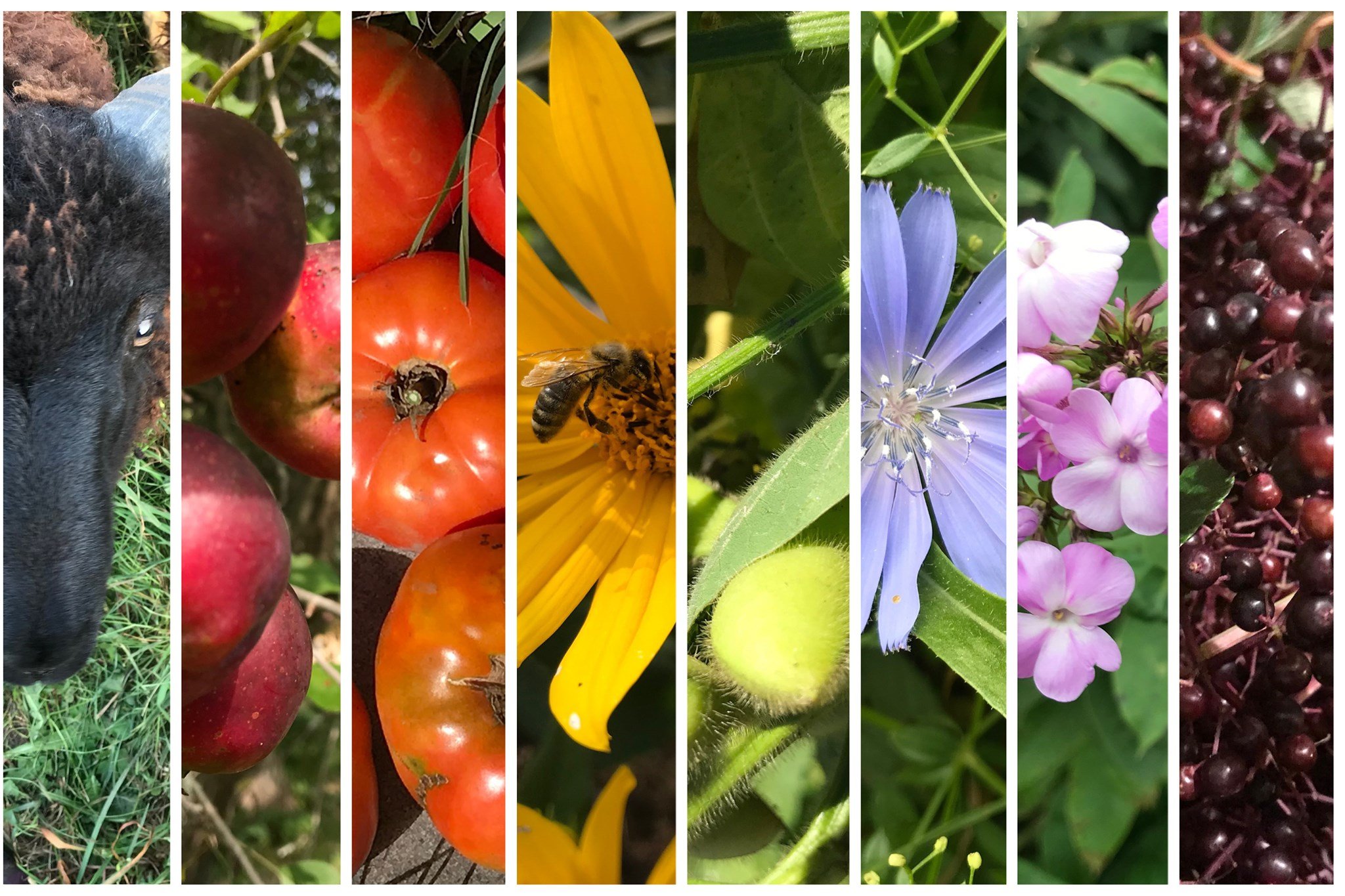
Our Practices
Bobolink Is a Grass-Based Farm
Using an intensive rotational grazing system, we move the sheep every day late spring through early fall. They typically graze in three groups, one on the home fields and two on the fields of generous neighbors.
Passersby enjoy looking for “where are the sheep today?” Once the grass stops growing, the sheep eat hay, most of which we harvest from our fields (and the fields of neighbors).
Grass Farming
Moving the sheep every day to new and relatively small paddocks, created by portable electric fencing, ensures that forage is grazed quickly and evenly, which is better for the soil and for the sheep. Waiting at least 30 days to return to a pasture helps minimize parasite load. Putting up our own hay for winter feed means that we minimize external inputs and that all sheep eat grass almost exclusively. (The exception is feeding organic grain to the ewes for 2-3 days after they give birth.)
Improving the Habitat
The ecological benefits of grass farming include minimal erosion (due to no-till practices), improved soil health, and increased carbon sequestration. We also work to manage both field and forest in ways that support a diversity of flora and fauna habitat, for example focusing on forest regrowth, timing grazing and mowing around bird habitat as much as possible, and working to control invasive plants like buckthorn, honeysuckle, burdock, chervil, and knotweed to encourage growth of native species. Ecological diversity is evident, for example, in our observation of 65+ species of birds and 20+ species of butterflies!
Humane Treatment
Humane treatment of our animals is also essential for us. We strive to give our sheep the best possible lives, attentive to their health and handling them with care. Grass-fed lambs grow more slowly, but living on pasture for six months of the year enables them to develop and behave normally and as individuals.
Organic Practices
While not certified organic, we subscribe to organic principles and make exceptions only to treat sick animals, and, even in those circumstances, minimally and judiciously.
Sustainability
Admittedly, we are still working to figure out the economic sustainability aspect. Daily we are reminded why most farmers, including us, also have off-farm jobs. We understand that lamb is more expensive than other meats, and that it costs more than many folks can afford, but unfortunately those are the current economics of small-scale farming. We believe that the benefits of grass-raised lamb are worth the costs, for our customers and for ourselves. (Note that we offer some less expensive cuts, that we often have select cuts on sale, and you can also save by buying in bulk.)
We follow these practices because our goal is to raise nutritious and delicious food for our local community, from animals that are well cared for and treated with respect, and in ways that benefit our ecosystem.







